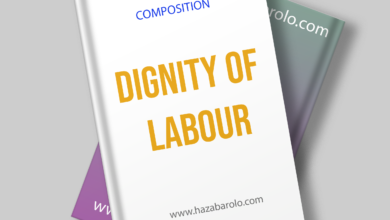Bangladesh War of Independence | Essay Composition

The independence war of Bangladesh covers a large part of history. Bangladesh gained independence after a long and bloody war. Today we will learn about the Bangladesh War of Independence.
Introduction
The war of independence is a glorious (গৌরবময়) period (সময়) in the history our country. The war was fought against the Pakistan army in 1971. Through this war Bangladesh emerged (অভ্যুদয় লাভ করে) as an independent (স্বাধীন) country. It was also a war of supreme sacrifice. About three million people died in this war. Most of them died in the genocide (গণহত্যা) carried out (পরিচিত) by the Pakistani army.
Historical Background
The boundaries of East Pakistan, which was later became Bangladesh, were determined (নির্ধারণ করে) by Sir Cyril Radcliffe, chairman of the Boundary Commission of the British regime (শাসন). The two parts of Pakistan- the East Pakistan and the West Pakistan were far away from each other. From the beginning, the link between the two parts of Pakistan was tenuous (হালকা). Their only common interest was fear of Indian domination (প্রভুত্ব). Jinnah and his advisers believed that unification (সংযুক্তি) might be achieved (অর্জন করা) through a common language, Urdu. The Bengalis perceived (ধারণ করা, অনুভব করে) this as a threat (হুমকি). The other major grievance (অসন্তোষ) of Bengalis was that their export products, jute and tea, provided most of Pakistan’s foreign exchange but the central government stimulated (উদ্দীপ্ত করা) development mainly in the West. The Bengalis began to feel that they had no real power in Pakistan. In 1956 Pakistan at last obtained a proper constitution (সংবিধান) in which both wings (অংশ) were equally represented (প্রতিনিধিত্বকৃত হয়েছিল). So far prime ministers had come and gone. Suhrawardy took office in September 1956 with a motley (বিভিন্ন শ্রেণীর) group of supporters. The government lasted only one year. In 1958, the army took over the government.
Under the military, the elite (সম্ভ্রান্ত) civil servants assumed great importance, which adversely (বিরূপভাবে) affected (প্রভাবিত করেছিল) the East wing. In 1947 there had been only one Bengali Muslim in the Indian Civil Service (ICS), whereas the West wing had produced about 40. Although the recruitment policy was designed to diminish (হ্রাস করা) the difference (পার্থক্য), by 1960 only about one-third of the personnel in the Civil Service of Pakistan (successor to the ICS) were Bengalis, with none in senior positions.
Bengali discontent (অসন্তোষ) festered (পুঞ্জীভূত হয়েছিল), finding a spokesman in Mujibur Rahman (known as Bangabandhu Sheikh Mujibur Rahman). Mujib was one of the founders of the Awami League in 1949 and, after Suhrawardy’s death, became its leading figure. Jailed repeatedly (বারবার) by the military, he acquired (অর্জন করেছিল) an aura (মাহাত্ম; মহিমা) of martyrdom (শহীদ; আত্মত্যাগী). He announced a six-point demand for autonomy (স্বায়ত্তশাসন). When in December 1970 President Yahya Khan ordered elections, the Awami League won 167 of the 169 seats allotted to East Pakistan, or Bangladesh as it was now popularly called, in the National Assembly. This gave the League an overall majority in a chamber of 313 members. In West Pakistan, however, the Pakistan People’s Party, led by Zulfikar Ali Bhutto, won 81 of 144 seats: Bhutto saw himself as Mujib’s rival (প্রতিদ্বন্দ্বী).
The War
Throughout March 1971 President Yahya Khan negotiated (আলােচনা চালিয়েছিল) at length (বিস্তারিতভাবে) in Dhaka with Mujib while government troops (সৈন্য) poured in (ঢালা, প্রবেশ করানাে) from West Pakistan. Then, on March 25, the army launched (চালিয়েছিল) a massive (ব্যাপক) attack in which there were heavy casualties (মৃত্যু), including many students. Mujib was arrested and flown to West Pakistan. Most of the Awami League leaders fled (পালিয়ে গিয়েছিল) and set up a government-in-exile (প্রবাসী সরকার) in Calcutta, declaring (ঘােষনা করে) Bangladesh an independent state. Internal resistance (প্রতিরােধ) was mobilized (পরিচালিত হয়) by some Bengali units of the regular army, notably by Major Zia ur-Rahman, who held out for some days in Chittagong before the town’s recapture (পুনর্দখল) by the Pakistan army. He then retreated to the border and began to organize bands of guerrillas.
A different resistance was started by student militants, among whom Abdul Kader Siddiqi with his followers, known as Kader Bahini, acquired a reputation for ferocity (হিংস্রতা). Some 10 million Bengalis, mainly Hindus, fled over the frontier (সীমান্ত) into India. The Indian government watched the struggle (সংগ্রাম) with alarm. The United States and China, for different reasons, were committed to a united Pakistan; India and the Soviet Union wanted a Bangladesh dependent on India.
The Victory
Eventually, on Dec. 3, 1971, the Indian army invaded (আক্রমণ করেছিল) the territory (ভূমি) of its neighbor (প্রতিবেশী). The Pakistani army surrendered (আত্মসমর্পন করেছিল) on December 16. Mujib was released (মুক্তিদান করা) from jail and returned to a hero’s welcome, assuming (গ্রহণ করে) leadership of the new Bangladesh government in January 1972.
Conclusion
Our victory in the war of independence was a hard-earned (কষ্টার্জিত) one. We should not let this great achievement (অর্জন) go in vain (বিফলে). Now it is our duty to safeguard (সুরক্ষা) this victory and turn Bangladesh into a prosperous (সমৃদ্ধ) country.



